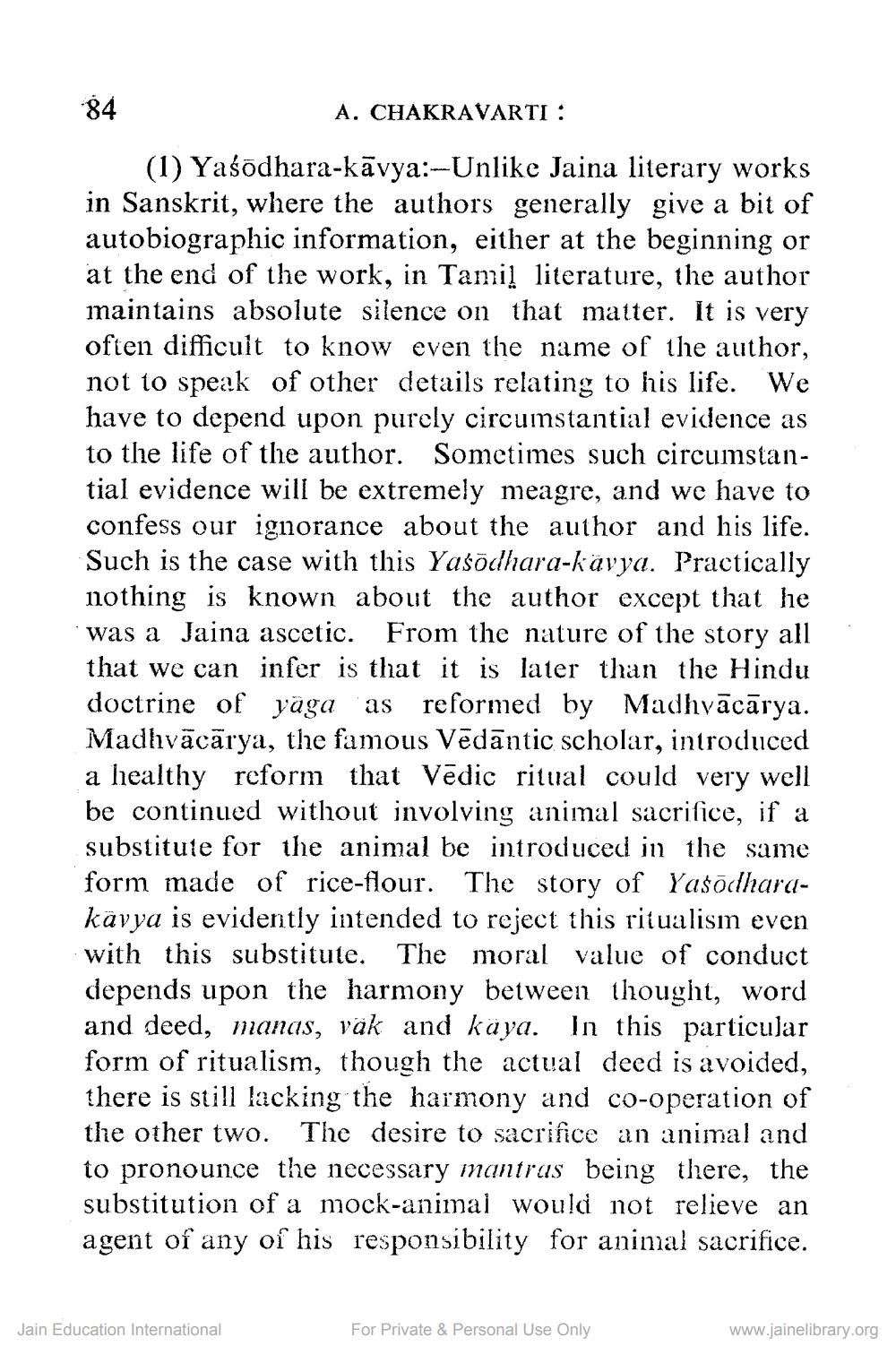________________
84
A. CHAKRAVARTI :
(1) Yaśõdhara-kāvya:-Unlike Jaina literary works in Sanskrit, where the authors generally give a bit of autobiographic information, either at the beginning or at the end of the work, in Tamil literature, the author maintains absolute silence on that matter. It is very often difficuit to know even the name of the author, not to speak of other details relating to his life. We have to depend upon purely circumstantial evidence as to the life of the author. Sometimes such circumstantial evidence will be extremely meagre, and we have to confess our ignorance about the author and his life. Such is the case with this Yaśõdhara-kavya. Practically nothing is known about the author except that he was a Jaina ascetic. From the nature of the story all that we can infer is that it is later than the Hindu doctrine of yaga as reformed by Madhyācārya. Madhvācārya, the famous Vedāntic scholar, introduced a healthy reform that Vedic ritual could very well be continued without involving animal sacrifice, if a substitute for the animal be introduced in the same form made of rice-flour. The story of Yasodharukavya is evidently intended to reject this ritualism even with this substitute. The moral value of conduct depends upon the harmony between thought, word and deed, manas, väk and kaya. In this particular form of ritualism, though the actual deed is avoided, there is still lacking the harmony and co-operation of the other two. The desire to sacrifice an animal and to pronounce the necessary mantras being there, the substitution of a mock-animal would not relieve an agent of any of his responsibility for animal sacrifice.
Jain Education International
For Private & Personal Use Only
www.jainelibrary.org




